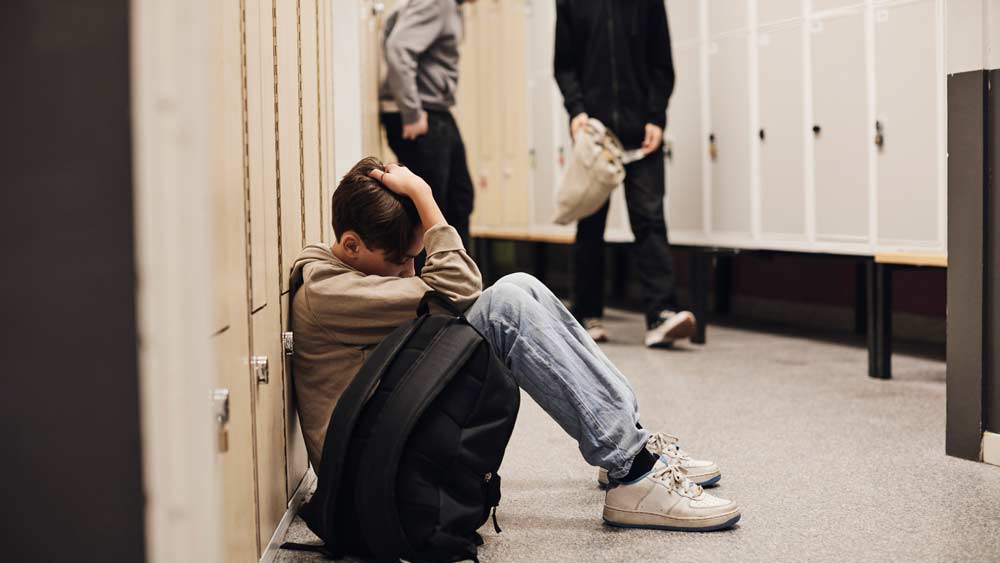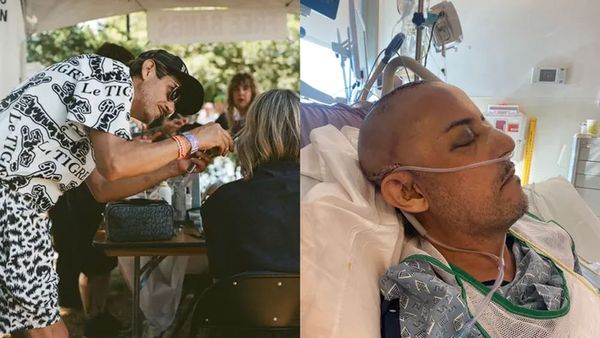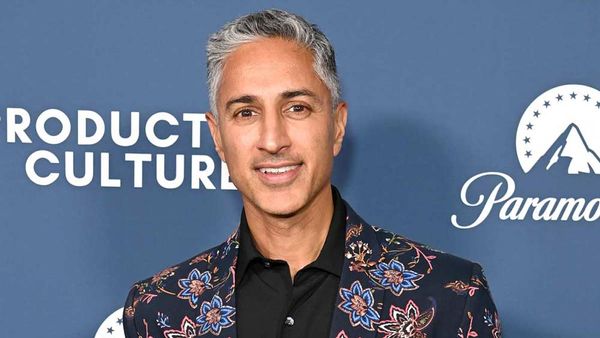March 24, 2011
Thieves Steal AIDS Meds in S. Africa -- To Make Designer Drug
Kilian Melloy READ TIME: 5 MIN.
People living with HIV in South Africa have plenty to worry about, given the prospect of cheap generics disappearing. Now another threat to their supply of medication has arisen, reported AFP on March 20: thieves stealing HIV medications in order to get high.
Many myths and rumors have troubled African nations when it comes to HIS and AIDS. South Africa's own top medical authorities once disputed whether the disease was caused by a virus, and recommended potions made with beet juice as a cure. In some African countries, the rumor persists that men with AIDS can be cured if they have sex with virgin girls--a disastrous prescription, because HIV is sexually transmitted.
Now, a new myth has thrill-seeking youths convinced that the anti-retroviral substances (ARVs) in AIDS medicines can be used to create "whoonga," a drug that is made from heroin and toxic substances such as rat poison. In actuality, the AFP article noted, whoonga is not made with AIDS medication at all--which makes the theft of the drugs not only a blow to the people who need them, but an utter waste even to the thieves.
"I don't know who the dealers are, but I know that they use kids to steal ARVs for them," said one victim of such a theft, identified in the AFP article only as Nonhlanhla, who lives in KwaMashu. "In the township you see kids stealing the medication of their parents and selling it to the people who make whoonga," she added.
AIDS has hit many African nations hard, but South Africa has the highest number of cases: over five and a half million people in that country are living with HIV / AIDS, the AFP article noted. Crime rates in KwaMashu, near the city of Durban, are high even by the notorious standards of South Africa's townships.
Drugs are not an unusual problem in high-crime areas. They provide release to some--and moneymaking opportunities to others. But the drug trade also intensifies suffering and violence, compounding the problems that may drive some to drug use in the first place. The nation's president, Jacob Zuma, gave an address at a recent conference on drugs that included comments on the theft of anti-retrovirals by thieves who mistakenly thought that they could be used to manufacture the narcotic, APF reported.
"Perpetuating such inaccuracies is dangerous as it may make drug addicts to steal ARV's, which would put the lives of people on treatment for HIV at risk," Zuma warned.
The president's words may not reach the street level very easily, and if they do, they may be shrugged off. Drug dealers and drug makers insist that the medicines are part of the popular drug's recipe.
"What we put in whoonga? We put ARV's, rat poison and other things," said Tami Langa, a drug dealer who has recently come out of rehab.
The persistence of the myth has even affected the lives of AIDS patients in ways other than theft of life-saving drugs.
"[S]ometimes they don't even get robbed -- they are selling it," pharmacist Bridget Beauchamp told the AFP.
"Even if ARVs are not active ingredients of whoonga, they might be used as filler", said Anwar Jeewa, who runs a rehab center. Pharmacist Santosh Basdeo agreed.
"Whoonga can be anything from a combination of ARVs, to rat poison, things that you can buy over the counter at the pharmacy, things that you even have at home as well as any ingredient just to basically keep the cost of the drug as low as possible," Basdeo told the AFP.
But the cost of HIV medications may be bound to rise substantially--perhaps beyond the ability of many people in poorer nations to afford it. The EU and India, where much of the world's supply of cheap generic AIDS drugs are manufactured, have for years been negotiating back and forth over the issue, with the EU looking to see prices hiked.
The drugs that India manufactures have helped five million people living with HIV to maintain their health, according to Medecins Sans Frontieres (Doctors Without Frontiers).
"More than 80 percent of the AIDS drugs our medical practitioners use to treat 175,000 people in developing countries are affordable generics from India," said MSF spokesperson Paul Cawthorne, according to March 2 AFP report.
Cawthorne said that HIV patients were not the only ones to benefit from the lower cost of India-made generics. "Beyond AIDS, we rely on producers in India for drugs to treat other illnesses, such as tuberculosis and malaria," Cawthorne explained. "We cannot afford to let our patients' lifeline be cut."
The EU is seeking more protections on intellectual property, including "data exclusivity" provisions that would extend to drugs that are no longer protected from generic brands by patent limitations.
"It would be a colossal mistake to introduce data exclusivity in India, when millions of people across the globe depend on the country as the 'pharmacy of the developing world,' " UN Special Rapporteur on the Right to Health Anand Grover said.
A recent protest in New Delhi against allowing prices of generics to climb drew over 2,000 participants, the article said. Protesters came from various Asian nations, as well as from across India. The demonstration included a march and a "lie-in," the article said.
AFP reported that in 2000 people living with HIV had to pay $10,000 to secure needed medication. But the advent of India-made generics made drug regimens far more affordable for far more people, with prices falling to $70 per year within a decade.
"We all rely on affordable medicines made here in India to stay alive," said the Asia Pacific Network of Positive People's Rajiv Kafle, who traveled from Nepal. "We don't want to go back in time, to when our friends and loved ones died because they couldn't afford the medicines they needed."
Pharma Times Online reported that India joined the World Trade Organization in 1995. That group has policies in place regarding intellectual property, patents, and generic versions of pharmaceuticals. But according to the protesters, the EU is looking to gain protections that exceed the ones guaranteed by the WTO.
According to Pharma Times Online, critics charge that India's status as a provider of affordable generic drugs came about because, "when it designed its patent law, [India] prioritized public health, limiting patents to drugs that are new and not 'just routine improvements to older medicines.' "
"India's law has long annoyed multinational pharmaceutical companies, and Novartis and Bayer have even tried to overturn the law in the Indian courts," the Delhi Network of Positive People' Loon Gangte, who also attended the protest, said. "They have failed so far, but companies have now convinced European governments to take up their fight for pharmaceutical profits," he added.
"Data exclusivity has proven to be damaging to public health in FTAs in other countries," Grover told Pharma Times. "It would be a colossal mistake to introduce data exclusivity in India, when millions of people across the globe depend on the country."
"The EU is India's largest trading partner," noted the Pharma Times Online article.
Kilian Melloy serves as EDGE Media Network's Associate Arts Editor and Staff Contributor. His professional memberships include the National Lesbian & Gay Journalists Association, the Boston Online Film Critics Association, The Gay and Lesbian Entertainment Critics Association, and the Boston Theater Critics Association's Elliot Norton Awards Committee.




